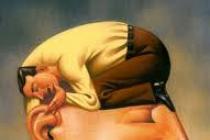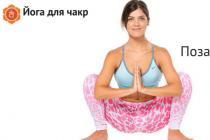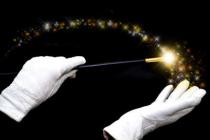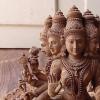Born March 15, 1974 in Voronezh. Father - Sautin Ivan Petrovich (born in 1934). Mother - Sautina Anna Mikhailovna (born in 1939).
Dmitry Sautin is rightly called the king of diving, a symbol of this sport. Today he is at the age when his skill and years allow him to say that he is a true professional. Meanwhile, 20 years ago, no one could have imagined that an athlete would be able to achieve such a unique success.
Dmitry was physically strong from childhood, he could easily pull himself up on the horizontal bar and hold the corner for a long time, but he was extremely inflexible and did not know how to swim at all. Therefore, it seems paradoxical that he began his path to the heights of sports in the diving section, in which in 1981 the coach of the Voronezh sports school Tatyana Alexandrovna Starodubtseva recruited children. It is known only to her alone how she guessed the future magnificent master in a thunderstorm of gates, a potential "client" of the inspection for juvenile delinquents.
From the outside, it may seem that the path of Dmitry Sautin in sports is strewn with roses alone. Indeed, he very early draws the attention of the country's leading experts. Many were amazed at the technique of his jumps. Especially admired by all his perfectly vertical entry into the water. So much so that in those years the nickname "the guy with lead in his head" stuck to him. And this despite the fact that it was sometimes difficult to distinguish him, a young man of short stature, on the tower. According to the Honored Master of Sports of the USSR, Olympic champion in diving, and now one of the leading sports journalists of the country Elena Vaitsekhovskaya, in those years, Dmitry always performed arbitrary jumps from a 10-meter tower, and mandatory - from a 5-meter one. He had not yet learned to fly, but he was spinning wildly in the air. Some experts believed that such jumps would not bring him to good. However, the skill of the young athlete grew literally before our eyes, his performances became more and more stable, and soon he became head and shoulders above his peers.
It's a paradox, but the first international competition for Dmitry Sautin ended before it even started. During the gathering of the children's team before the match between the USSR and the GDR in Dnepropetrovsk, the coaches drew attention to him and decided to send him to the European Cup. However, he was not allowed to start: in a hurry, no one paid attention to the regulations of international competitions of such a level, which determined the age limit for adult teams at 13 years old.
Dmitry Sautin's steep ascent up the sports ladder began in 1991, when, having barely got into the national team, he immediately won the European Cup on the 10-meter tower and took 2nd place at the European Championship in Athens.
The young Voronezh resident was rapidly gaining points in the international orbit. 1992 was marked by victories at the European Cup in Milan, 3rd place on the springboard in Olympic Barcelona. The 1993 European Championship in the English city of Sheffield brought the athlete gold on the 10-meter tower and silver on the 3-meter springboard.
However, Dmitry Sautin showed his truly fantastic character and will to win to everyone at the World Championships in Rome in 1994. Then no one seriously expected a Russian victory. At that time, Chinese athletes already dominated diving. However, some of Dmitry's jumps were so good, and so indistinguishable in quality and style from the best "Chinese" options, that the coaches and spectators immediately jokingly changed the Russian's surname into the Chinese manner with an emphasis on the last syllable: Xiau-ting. Sautin's second place on the 3-meter springboard, where he lost by almost 10 points to the Chinese Yu Zhuochen, was received almost with glee: the day before, Dmitry left the finalists on the one-meter projectile. On the tower, the Chinese Song Shui reigned, defeating his compatriot Xiong Ni, who, in turn, competed on equal terms with four-time Olympic champion Gregory Louganis. The leader of the Russian team could not get into the final at all in this type of competition. After the third of five free jumps, he was only in 22nd place (!), while in order to reach the final it was required to enter the number of twelve. However, at the last moment he pulled himself together, completed the remaining two jumps perfectly, got into the final, and in the final jumps he was able to get ahead of Song Shui on the crown for the last tower by 4 points.
Best of the day
The following year, 1995, the Russian athlete became the first at the European Championships in Vienna (Austria).
After the World Cup, Dmitry Sautin began to have problems with his hand. No one has yet been able to protect themselves from such injuries while jumping from a tower. The constant load on the hands when entering the water invariably leads to sprains - so familiar that you simply do not pay attention to pain. It is impossible to bandage the whole brush to fix it: the cleanliness of the entrance to the water is violated. If a more serious injury occurs, each jump becomes torture. Dmitry's wrist joint became so inflamed that a fistula formed on his wrist. Jumping upside down was painful even from the side. The examination showed that severe inflammation of the tendons began in the joint due to pinched nerve endings.
In 1995, at the World Cup in Atlanta, Sautin won the first victory in the history of Russian and domestic diving on a 3-meter springboard. However, in diving from the tower, due to a sore arm, he could not stand up normally, but still jumped and took 7th place. In the time that remained before the Olympics, long-term treatment was out of the question: the operation would have put Dmitry out of action for at least a few months, which would have cast doubt on his participation in the Olympics. Some even advised to stop jumping from the tower. However, for Sautin, this was unacceptable. In the same place in Atlanta, he was approached by a professor at the University of Pittsburgh (Pennsylvania, USA) Semyon Slabunov (in Soviet times he was a psychologist of the USSR diving team, and after moving to the USA he began working in the field of psychology and sports medicine) with a proposal to conduct due to the American side of a special monthly course of treatment. Dmitry agreed, and it gave its results. He was able not only to continue training, but also in the future performed quite successfully in diving. Subsequently, when asked why the Americans needed to treat so diligently, and even at their own expense, in fact a competitor to their own jumper Mark Lenzi, the answer was: "Sautin does not belong to one country, it belongs to the planet."
The most surprising thing: despite the injury, no one could get close to Sautin in the 1996 Olympic season. Before the Games in Atlanta, USA Today published an article "Russian Robot", implying the notorious indestructibility of the world champion. It was more convenient for American journalists to think that way: in this case, the defeat of their athletes did not look so offensive. The reaction to the "robot" from the US jumpers was stormy: in their circles, Sautin had for several years another, respectful, nickname - "The Man" (Man).
In Atlanta, after the first final jump, Sautin won back 4 points from the Chinese Tian Lian, which he lost in the compulsory program, and took the lead by 0.12. After the second attempt, the gap was already at 10.68. Another round - 30.24, then - 49.05. Such a reserve made any further resistance to Sautin pointless. At the press conference, the Olympic champion hardly spoke. He did not feel anything - neither the joy of victory, nor fatigue. Only pain...
In 1997, Dmitry Sautin won another gold at the World Championships in Seville, Spain, and at the 1998 World Championships in Perth, Australia, he won the absolute championship for the first time in his life. Particularly impressive was his victory on the tower: Dmitry beat his closest rival Tian Liang by 90 points and almost 40 points exceeded the unofficial record of a decade ago, set by the American Louganis, gaining 750.99 points. During the free program, the Russian athlete received 11 top marks- "ten". And he set another unofficial record: he became the first jumper in the world who managed to score more than 100 points in one of the jumps. And this is after the most difficult operation on the hand, which was transferred immediately after returning from Atlanta.
At the 1999 European Championships in Istanbul, Dmitry Sautin won gold on the 10-meter platform, and in 2000 at the European Championships in Helsinki, he took 1st place in platform diving, ski jumping and synchronized diving, 2nd place - in synchronized ski jumping.
A year and a half before the Olympic Games, synchronized jumps were included in the program of the Olympic tournament for the first time. In Sautin's coaching staff (A.G. Evangulov and T.A. Starodubtseva), the question immediately arose: would Dmitry be able to take part in this type of competition? There was a well-founded opinion that his style was so unique that it would not be so easy for him to find a partner. However, they decided to take a risk, which created an unprecedented precedent in diving: before Sautin, not a single athlete in the world took part in all four types of the program at any competition.
The result exceeded all expectations: Sautin won medals in all four apparatuses: gold in synchronized diving, silver in synchronized ski jumping and two bronze medals in ski jumping and diving.
Many predicted victory for the athlete in the 3-meter springboard. Indeed, Dmitry was the leader in this type of program until the very last jump. However, it was the last, super-difficult jump, which he mastered shortly before the competition, that let him down. The whole trick and trouble was that according to the rules it was impossible to change the previously approved program: it would be possible to simplify the jump, as is done, for example, in figure skating. But after all, no one expected that Sautin would be in the lead, and therefore a request to simplify the jumping program was not submitted.
One way or another, but his performance at the Sydney Olympics is a real record in world diving. And the uniqueness of this achievement is also reinforced by the fact that Dmitry had two different partners in synchronized diving from the tower and from the springboard!
Before the World Championships in Fukuoka, Japan, Dmitry Sautin further strengthened his program. Moreover, if before the Olympics he had to be convinced that he needed to jump from four shells, now the coaches convinced him of the opposite: to concentrate on only the two least traumatic - individual and synchronized ski jumps. As a result, Dmitry performed brilliantly from the 3-meter springboard and added another world champion gold medal to his unique collection of awards.
In 1996 he graduated from the Voronezh State Institute of Physical Culture. However, he is not going to leave big sport yet: he is not bored with winning and he is still ready to prove that he is the strongest. So, in September 2001, he won his next gold medal - in jumping from a 3-meter springboard at the Goodwill Games in the Australian city of Brisbon. (Before that, he had already won the Goodwill Games twice - in 1994 in St. Petersburg and in 1998 in New York.)
For outstanding sporting achievements, Dmitry Sautin was awarded the Order of Merit for the Fatherland, IV degree (2001) and the Order of Honor (1995). At home, he was awarded the title of honorary citizen of the city of Voronezh.
According to the reviews of everyone who happened to be acquainted with Dmitry, he is a very modest, sociable and at the same time a gambling, cheerful, cheerful person. He prefers to spend his leisure time outdoors, likes to go to the forest for barbecue or take a steam bath. In addition to water sports, he enjoys freestyle, gymnastics, trampoline, hockey, and figure skating. He loves music, enjoys watching good domestic and foreign films, especially comedies and action films. His favorite actors are Evgeny Leonov, Anatoly Papanov, Andrey Mironov.
cousins or relatives
wev888 26.09.2010 02:12:22
My name is Olga Vyacheslavovna Sautina. I live in Sarapul, Udmurtia. My parents claim that Dmitry is a paternal relative to us and the reception explained everything in detail who is with whom, when and where. Best regards, Olga.
Dmitry Sautin is a Russian diver who twice became an Olympic champion. He became the only winner of eight Olympic awards in the history of diving. In 2000 he was awarded the title of Honored Master of Sports of Russia. He is also a lieutenant colonel of the Russian Armed Forces, played for the Voronezh CSKA.
Currently, Dmitry Sautin is the vice-president of the All-Russian Diving Federation. And you can invite Dmitry Sautin to speak at your event. He is rightly called the king of diving. And his lightning-fast career is simply amazing. In Russia, he became a real legendary personality.
Biography of Dmitry Sautin
According to the official website of Dmitry Sautin, he was born in Voronezh, in 1974. He graduated from the State Institute of Physical Culture in his hometown. He began to train at the age of seven, he had one mentor - Starodubtseva Tatyana Aleksandrovna. His specialty is 3m springboard jumping and 10m high jumping. He performs both individually and in sichrone with other athletes.
He achieved his first success at the age of seventeen, playing for the USSR national team. Then at the European Championships in Athens, he won a silver medal. Dmitry performs despite injuries and pain - and he has achieved truly outstanding results. In 2000, at the Sydney Olympics, he was able to win medals in all numbers of the men's diving program.
Today you can invite Dmitry Sautin with a master class. This is the best diver of the 20th century. He is one of the few athletes who fought with athletes from China. He became the first athlete who was able to get the highest score for his jump - 100 points. In 1998 and 2000, Dmitry was recognized as the best athlete in Russia.
For his truly greatest achievements in sports, Dmitry Sautin has received many awards. And his hometown of Voronezh considers him an honorary citizen.
Today Dmitry Ivanovich is a deputy in the Voronezh Regional Duma. He takes an active part in the public life of our country. In 2013, Sautin took part in the Pose program of the Universiade 2013, and in 2015 he was the Ambassador of the Championship. The athlete tries to attract the widest possible public attention to sports, healthy lifestyle life and tourism, supports yard sports. And in 2017, he became the official ambassador of the third Winter Military World Games.
Today, many often order Dmitry Sautin with lectures, master classes. He takes part in business events as a speaker. His success story is interesting and in many ways unique. He knows firsthand what it is to overcome oneself, how to go towards the goal and not break. Not only future athletes, young people listen to the story of the development of his sports career with great pleasure. But at events for partners, he also always made an indelible impression.
How to invite Dmitry Sautin
Today you can order speaker Dmitry Sautin in our agency. With this outstanding Russian athlete, a unique personality, we cooperate directly. Therefore, we will definitely help to invite him with a master class, lecture, seminar, performance with a success story. We will solve all organizational issues as quickly and efficiently as possible.
Our agency also cooperates with other outstanding athletes who have brought our country more than one Olympic gold. So, here you can invite Alexei Yagudin, Ilya Averbukh, Irina Slutskaya, Alexei Nemov, Kostya Tszyu, and other famous Russian athletes. And, of course, we cooperate with those people who have raised more than one generation of gold medalists. So, you can order Tatyana Tarasova from us, invite Vladislav Tretiak. These legendary personalities have made a colossal contribution to the development of national sports.
Our agency specializes in selecting speakers for your events. And we cooperate with the best speakers from different fields of professional activity. These are not only outstanding athletes and coaches. We cooperate with businessmen, journalists, presenters. Contact us - we will definitely select only the best speaker for you! Many offers can be found on our website.
In 1974, on March 15, the world-famous Dmitry Sautin was born. His biography began in the city of Voronezh, where there is no person who has not heard this name. But he is popular not only at home, because the whole world knows Dmitry Sautin, who has become a symbol of diving.
Childhood and youth
Dmitry was born in the family of Ivan Petrovich and Anna Mikhailovna Sautin. The child was gifted with excellent physical data, but did not differ at all in flexibility. For the first time, the future champion got into the section at the age of 7, by the age of ten he had already competed in diving, and at the age of seventeen he was included in the USSR national team. And having hardly gained a foothold in the main team, Dmitry Sautin won gold at the European Cup. Diving eventually brought the young athlete the title of king of this sport.
The future champion in a strong boy was seen by the honored coach of the USSR Tatyana Alexandrovna Starodubtseva. An interesting fact is that from the first days to the end, Tatyana Alexandrovna was the only coach of Dmitry.
Path to glory
Dmitry Sautin burst into big sport with lightning speed, as a high jumper enters the water. The young athlete immediately attracted the attention of many professionals. His jumping technique amazed the leading specialists of the country. The coaches of the national team were so impressed with the success of the young Voronezh resident that they sent young man to his first international competitions, not paying any attention to Then the European Cup ended for Dmitry, not having time to start, because he was too young for these competitions, and the organizers simply did not allow him.

Steep climb
In 1991 Dmitry Sautin got into the national team. In the same period, at the European Cup, a young athlete wins gold in jumping from a 10-meter platform. Following at the European Championships in Athens, he becomes a silver medalist.

- in 1992 gold at the European Cup in Milan;
- in 1993, gold on the 10-meter platform and silver on the 3-meter springboard at the European Championship in Sheffield;
- in 1994, silver on the 3-meter springboard of the World Championships in Rome, as they said then, with a golden tint, because no one expected that the Russians would be able to impose a fight on the Chinese "kings" of diving. And then there was a real sensation when, having barely made it to the finals of 10-meter jumps, Dmitry defeated Sunn Shui, who “reigned” then on the tower;
- in 1995, the gold of the European Championship in Austria. In the same year, for the first time in the history of domestic jumping, Dmitry Sautin became the winner in the competition on the 3-meter springboard at the World Cup in Atlanta;
- in 1996, the gold of the Olympic Games in Atlanta (USA);
- in 1997, the gold of the World Championship in Spain;
- in 1998, at the World Championships in Australia, the absolute championship was won. Sautin bypassed the nearest pursuer by as much as 90 points and then became the first jumper in the world to score more than one hundred points in one jump;
- in 1999, the gold of the World Championship in Turkey;
- in 2000, an olympiad was held, which made Dmitry a winner in absolutely all disciplines of men's diving. He became the first with his partner Igor Lukashin in platform diving, the second with Alexander Dobroskok in ski jumping, earned bronze medals in individual platform and ski jumping;
- in 2001, the gold of the World Championship in Japan;
- in 2002, the gold of the European Championship;
- in 2003, gold at the world championship in synchronized jumping from 3 meters;
- in 2004 Olympic bronze in Athens;
- in 2006 Sautin again became the champion of Europe;
- in 2007, Dmitry won 3 at the World Championships;
- in 2008, the hero of our story earned Olympic silver in Beijing, paired with Yuri Kunakov.
Other achievements, titles and awards
- In 1995, he was awarded the Order of Honor for high sporting achievements.
- In 2001, Dmitry Sautin was awarded the Order of Merit for the Fatherland, IV degree.
- In 2006, he received the medal of the Order of Merit for the Fatherland, 1st class.
- In 2008, Dmitry received the distinction "For Services to Moscow"
- In 2009, the athlete was awarded the Order of Friendship.
- Dmitry Sautin is honorary citizen the city of Voronezh.
- The athlete has the Order of the Government of the Voronezh region "Gratitude from the land of Voronezh".
- Dmitry is the best Russian jumper of the 20th century.
- Another informal achievement is the fact that he was the first in the history of diving to score more than 100 points for a jump.
- Sautin is also a deputy of the Voronezh Regional Duma.
Through hardship to the stars
Not everything went smoothly with Dmitry Sautin, as it might seem at first glance. With his complexion, the future champion was more like a thunderstorm in the gates, and only Tatyana Aleksandrovna Starodubtseva knows how she guessed the star of diving in this stocky boy.
Many admired his technique and manner of performing jumps, his frenzied torsion in the air. But there were also skeptics, convinced that nothing good would come of a boy with such jumps.
In 1995, the athlete had problems with his hand. This is a typical injury for all professional jumpers, caused by constant stress on the hands when entering the water. And this disease happened on the eve of the Olympic Games. Dmitry simply could not afford at that moment the operation and the subsequent many months of rehabilitation. He continued to train and prepare, despite the fact that every jump and entry into the water turned into real torture. Then a Soviet doctor who emigrated to America, Semyon Stebunov, came to the rescue. Dmitry was offered to undergo a monthly course of treatment. This allowed the jumper to compete at the Olympics and win with a colossal advantage. But the pain did not allow then to enjoy such an important victory.
In 2000, for the first time, synchronized jumping was included in the program of the Olympic Games. Then a quite reasonable question arose as to whether Sautin could take part in this type of program. After all, the style of jumping performed by the Voronezh athlete was unique, and there were fears that it would be unrealistic to choose a partner for him. However, the coach took a chance and did not lose. That year, Sautin won medals wherever possible, and he jumped simultaneously from the tower and from the springboard with two different partners. In the same place in Sydney, individual gold “floated away” from Dmitry because of the desire to perform a super-difficult jump, but this did not prevent him from becoming a sensation in those games.
Family and personal life

One day, while walking around Voronezh, Dmitry met Ekaterina Bakhmetyeva, who did not suspect that the bald guy, reminiscent of Bruce Willis, was an Olympic champion and a world-famous athlete. Five years later, the young people got married. In the same 2008, Dmitry Sautin became a happy father. The athlete's family became even larger three years later. Then the couple had a second son.

Dmitry Sautin, whose personal life is very rich, is a loving father and husband, and, according to friends and acquaintances, he is a very sociable and cheerful person who loves outdoor recreation. And in addition to water sports, the hero of our story is fond of trampoline, freestyle, hockey. He also loves music and Soviet films.
Born March 15, 1974 in Voronezh. Father - Sautin Ivan Petrovich (born in 1934). Mother - Sautina Anna Mikhailovna (born in 1939).
Dmitry Sautin is rightly called the king of diving, a symbol of this sport. Today he is at the age when his skill and years allow him to say that he is a true professional. Meanwhile, 20 years ago, no one could have imagined that an athlete would be able to achieve such a unique success.
Dmitry was physically strong from childhood, he could easily pull himself up on the horizontal bar and hold the corner for a long time, but he was extremely inflexible and did not know how to swim at all. Therefore, it seems paradoxical that he began his path to the heights of sports in the diving section, in which in 1981 the coach of the Voronezh sports school Tatyana Alexandrovna Starodubtseva recruited children. It is known only to her alone how she guessed the future magnificent master in a thunderstorm of gates, a potential "client" of the inspection for juvenile delinquents.
From the outside, it may seem that the path of Dmitry Sautin in sports is strewn with roses alone. Indeed, he very early draws the attention of the country's leading experts. Many were amazed at the technique of his jumps. Especially admired by all his perfectly vertical entry into the water. So much so that in those years the nickname "the guy with lead in his head" stuck to him. And this despite the fact that it was sometimes difficult to distinguish him, a young man of short stature, on the tower. According to the Honored Master of Sports of the USSR, Olympic champion in diving, and now one of the leading sports journalists of the country Elena Vaitsekhovskaya, in those years, Dmitry always performed arbitrary jumps from a 10-meter tower, and mandatory - from a 5-meter one. He had not yet learned to fly, but he was spinning wildly in the air. Some experts believed that such jumps would not bring him to good. However, the skill of the young athlete grew literally before our eyes, his performances became more and more stable, and soon he became head and shoulders above his peers.
It's a paradox, but the first international competition for Dmitry Sautin ended before it even started. During the gathering of the children's team before the match between the USSR and the GDR in Dnepropetrovsk, the coaches drew attention to him and decided to send him to the European Cup. However, he was not allowed to start: in a hurry, no one paid attention to the regulations of international competitions of such a level, which determined the age limit for adult teams at 13 years old.
Dmitry Sautin's steep ascent up the sports ladder began in 1991, when, having barely got into the national team, he immediately won the European Cup on the 10-meter tower and took 2nd place at the European Championship in Athens.
The young Voronezh resident was rapidly gaining points in the international orbit. 1992 was marked by victories at the European Cup in Milan, 3rd place on the springboard in Olympic Barcelona. The 1993 European Championship in the English city of Sheffield brought the athlete gold on the 10-meter tower and silver on the 3-meter springboard.
However, Dmitry Sautin showed his truly fantastic character and will to win to everyone at the World Championships in Rome in 1994. Then no one seriously expected a Russian victory. At that time, Chinese athletes already dominated diving. However, some of Dmitry's jumps were so good, and so indistinguishable in quality and style from the best "Chinese" options, that the coaches and spectators immediately jokingly changed the Russian's surname into the Chinese manner with an emphasis on the last syllable: Xiau-ting. Sautin's second place on the 3-meter springboard, where he lost by almost 10 points to the Chinese Yu Zhuochen, was received almost with glee: the day before, Dmitry left the finalists on the one-meter projectile. On the tower, the Chinese Song Shui reigned, defeating his compatriot Xiong Ni, who, in turn, competed on equal terms with four-time Olympic champion Gregory Louganis. The leader of the Russian team could not get into the final at all in this type of competition. After the third of five free jumps, he was only in 22nd place (!), while in order to reach the final it was required to enter the number of twelve. However, at the last moment he pulled himself together, completed the remaining two jumps perfectly, got into the final, and in the final jumps he was able to get ahead of Song Shui on the crown for the last tower by 4 points.
The following year, 1995, the Russian athlete became the first at the European Championships in Vienna (Austria).
After the World Cup, Dmitry Sautin began to have problems with his hand. No one has yet been able to protect themselves from such injuries while jumping from a tower. The constant load on the hands when entering the water invariably leads to sprains - so familiar that you simply do not pay attention to pain. It is impossible to bandage the whole brush to fix it: the cleanliness of the entrance to the water is violated. If a more serious injury occurs, each jump becomes torture. Dmitry's wrist joint became so inflamed that a fistula formed on his wrist. Jumping upside down was painful even from the side. The examination showed that severe inflammation of the tendons began in the joint due to pinched nerve endings.
In 1995, at the World Cup in Atlanta, Sautin won the first victory in the history of Russian and domestic diving on a 3-meter springboard. However, in diving from the tower, due to a sore arm, he could not stand up normally, but still jumped and took 7th place. In the time that remained before the Olympics, long-term treatment was out of the question: the operation would have put Dmitry out of action for at least a few months, which would have cast doubt on his participation in the Olympics. Some even advised to stop jumping from the tower. However, for Sautin, this was unacceptable. In the same place in Atlanta, he was approached by a professor at the University of Pittsburgh (Pennsylvania, USA) Semyon Slabunov (in Soviet times he was a psychologist of the USSR diving team, and after moving to the USA he began working in the field of psychology and sports medicine) with a proposal to conduct due to the American side of a special monthly course of treatment. Dmitry agreed, and it gave its results. He was able not only to continue training, but also in the future performed quite successfully in diving. Subsequently, when asked why the Americans needed to treat so diligently, and even at their own expense, in fact a competitor to their own jumper Mark Lenzi, the answer was: "Sautin does not belong to one country, it belongs to the planet."
The most surprising thing: despite the injury, no one could get close to Sautin in the 1996 Olympic season. Before the Games in Atlanta, USA Today published an article "Russian Robot", implying the notorious indestructibility of the world champion. It was more convenient for American journalists to think that way: in this case, the defeat of their athletes did not look so offensive. The reaction to the "robot" from the US jumpers was stormy: in their circles, Sautin had for several years another, respectful, nickname - "The Man" (Man).
In Atlanta, after the first final jump, Sautin won back 4 points from the Chinese Tian Lian, which he lost in the compulsory program, and took the lead by 0.12. After the second attempt, the gap was already at 10.68. Another round - 30.24, then - 49.05. Such a reserve made any further resistance to Sautin pointless. At the press conference, the Olympic champion hardly spoke. He did not feel anything - neither the joy of victory, nor fatigue. Only pain...
In 1997, Dmitry Sautin won another gold at the World Championships in Seville, Spain, and at the 1998 World Championships in Perth, Australia, he won the absolute championship for the first time in his life. Particularly impressive was his victory on the tower: Dmitry beat his closest rival Tian Liang by 90 points and almost 40 points exceeded the unofficial record of a decade ago, set by the American Louganis, gaining 750.99 points. During the free program, the Russian athlete 11 times received the highest mark - "ten". And he set another unofficial record: he became the first jumper in the world who managed to score more than 100 points in one of the jumps. And this is after the most difficult operation on the hand, which was transferred immediately after returning from Atlanta.
At the 1999 European Championships in Istanbul, Dmitry Sautin won gold on the 10-meter platform, and in 2000 at the European Championships in Helsinki, he took 1st place in platform diving, ski jumping and synchronized diving, 2nd place - in synchronized ski jumping.
A year and a half before the Olympic Games, synchronized jumps were included in the program of the Olympic tournament for the first time. In Sautin's coaching staff (A.G. Evangulov and T.A. Starodubtseva), the question immediately arose: would Dmitry be able to take part in this type of competition? There was a well-founded opinion that his style was so unique that it would not be so easy for him to find a partner. However, they decided to take a risk, which created an unprecedented precedent in diving: before Sautin, not a single athlete in the world took part in all four types of the program at any competition.
The result exceeded all expectations: Sautin won medals in all four apparatuses: gold in synchronized diving, silver in synchronized ski jumping and two bronze medals in ski jumping and diving.
Many predicted victory for the athlete in the 3-meter springboard. Indeed, Dmitry was the leader in this type of program until the very last jump. However, it was the last, super-difficult jump, which he mastered shortly before the competition, that let him down. The whole trick and trouble was that according to the rules it was impossible to change the previously approved program: it would be possible to simplify the jump, as is done, for example, in figure skating. But after all, no one expected that Sautin would be in the lead, and therefore a request to simplify the jumping program was not submitted.
One way or another, but his performance at the Sydney Olympics is a real record in world diving. And the uniqueness of this achievement is also reinforced by the fact that Dmitry had two different partners in synchronized diving from the tower and from the springboard!
Before the World Championships in Fukuoka, Japan, Dmitry Sautin further strengthened his program. Moreover, if before the Olympics he had to be convinced that he needed to jump from four shells, now the coaches convinced him of the opposite: to concentrate on only the two least traumatic - individual and synchronized ski jumps. As a result, Dmitry performed brilliantly from the 3-meter springboard and added another world champion gold medal to his unique collection of awards.
In 1996 he graduated from the Voronezh State Institute of Physical Culture. However, he is not going to leave big sport yet: he is not bored with winning and he is still ready to prove that he is the strongest. So, in September 2001, he won his next gold medal - in jumping from a 3-meter springboard at the Goodwill Games in the Australian city of Brisbon. (Before that, he had already won the Goodwill Games twice - in 1994 in St. Petersburg and in 1998 in New York.)
For outstanding sporting achievements, Dmitry Sautin was awarded the Order of Merit for the Fatherland, IV degree (2001) and the Order of Honor (1995). At home, he was awarded the title of honorary citizen of the city of Voronezh.
According to the reviews of everyone who happened to be acquainted with Dmitry, he is a very modest, sociable and at the same time a gambling, cheerful, cheerful person. He prefers to spend his leisure time outdoors, likes to go to the forest for barbecue or take a steam bath. In addition to water sports, he enjoys freestyle, gymnastics, trampoline, hockey, and figure skating. He loves music, enjoys watching good domestic and foreign films, especially comedies and action films. His favorite actors are Evgeny Leonov, Anatoly Papanov, Andrey Mironov.
Our interlocutor - Dmitry Ivanovich Sautin was born on March 15, 1974 in Voronezh.
Graduated from the Voronezh State Institute of Physical Culture.
Twice (1998 and 2000) he was recognized as the best athlete of the year in Russia.
Recognized as the world's best diver of the 21st century.
At the moment - in the rank of lieutenant colonel, CSKA.
Participant of 5 Olympic Games - 1992, 1996, 2000, 2004,2008
Two-time Olympic champion
The only winner of medals in all 4 types of modern jumping at the Olympic Games
Five-time world champion:
12-time European champion in various disciplines (1993-2008):
World Cup and Grand Prix winner
Three-time winner of the Goodwill Games (1994, 1998 and 2001).
Awarded with orders: "For Merit to the Fatherland" IV degree, Order of Honor, Friendship, "Gratitude from the land of Voronezh"
Honorary citizen of the city of Voronezh.
Chairman of the Committee for Physical Culture and Sports of the Voronezh Regional Duma of the 5th convocation.
Dmitry Ivanovich, everyone's path to sports began in different ways. Some were brought by their parents, some by friends. How was it for you?
I was chosen by coach Tatyana Alexandrovna Starodubtseva at a physical education lesson in the first grade, back in 1981. She was recruiting for a group, and I, a bald, little guy from the Left Bank, joined the sixty children. She recently graduated from university, this was her second intake. So it turns out, we then grew up together, I'm like an athlete, she's like a coach.
- How can you determine the future diver in the gym?
I can’t say for sure, someone stretched, someone else did something else, I was strong, I could pull myself up three times and hold a corner on the “Swedish wall”.
- How many of these sixty are left in big sport?
There are two of us left. I and Lyudmila Shiryaeva, who reached the master of sports, but then she broke her leg, and I was left alone.
Did the classes interfere with your studies?
At first, no, but then, when he began to show some results, he got into the youth team, began to go to competitions and training camps. Russian Federation and beyond its borders - Uzbekistan, Belarus, Ukraine, it has become more difficult. I had to study there. In the morning training, and then went to a local school. There were four lessons. Then lunch, sleep and training again. This is how the collection went.

- Were you a "difficult child"?
Well, yes, it's not easy. And the character is not easy, actually was. But thanks to my coach, who also had a tough character, I became who I became. She was very strict with me, because the behavior was not so hot, it was necessary to follow me. (laughs - ed.) I started to go to competitions and training camps early, my parents were already kind of in the background, and she watched me more.
- I understand that it sounds trite, but what victory is most memorable?
This is naturally the first Olympic gold medal, in Atlanta - 1996. The hardest was in Sydney, in 2000, when I took part in four events, jumping each of the eleven competition days. I just wanted to rest, lie down and it seemed that I would have slept for a day, but the next day we flew away and all this quickly began to be forgotten.
- And not in sports?
These are my children. I still got married after leaving big sport, already in adulthood ... Now I have two sons. All attention to them, we educate, including with the help of sports.
Is the Olympics the same competition, or is there something special about it? Did you see the difference between the Olympics and the Goodwill Games, the World Cup?
A big difference. The Olympics is a psychological start, where if you are ready physically and mentally, everything is in order - you will win, if not, then you are just a participant. No one is immune from the fact that at the peak of physical fitness, you can get psychological stress and years of preparation will go down the drain.
- That is, all four years you have been preparing yourself for the Olympics?
Honestly, at least all fifteen years.

- If you knew in advance about injuries, defeats, insults, would you go into sports?
In general, I am grateful to God that I got into sports. I started at a very difficult time, I just had to survive. It was necessary to overcome lack of money, problems in all spheres of life. The fittest survived. It was necessary to work hard. For me, this is jumping, winning medals for the region and the country.
- And now, when the situation is clearly easier, would you advise parents to send their children to big-time sports?
Good and difficult question. It all depends on the parents. I would advise all parents to send their children not to professional, but to mass sports - physical education. I myself do not demand from my children that they must achieve Olympic medals. The most important thing is that they train, get health and psychological hardening. My eldest will go to school this year. It seems that the general training has already ended, but he himself continues to practice. Why should I interfere with this? I'm only helping.
- Will he go to an elite school?
Not in a regular school in the Military town. We live there, and he will go to school near the house.
- Where do you train? Palace of water sports - a distant future?
While in the old on Dimitrov, and there - time will tell. Unfortunately, the palace of water sports, today is, indeed, a distant future.
- Are you a believer? Many athletes pray before the start, was it like that?
Yes, I am a believer. I go to church. I really don’t keep fasts, but I believe in God. Before the start, I do not pray, but I wear a cross. And I only take pictures when I'm on the water.
- “The main thing is not victory, but participation”, is it about you?
No. In sports, I have always come to win medals, not just to participate, relax and see the sights, as some do. In 2012, at the Russian Championship, I still tried to qualify for the Olympics, but probably my age was not the same, and the youth grew up good. The replacement was ready. But just traveling is not my thing.
- So, having gone into politics, were you sure that everything would work out for you, or, like from a tower, upside down?
Politics is completely different. This is not a sport. Here you need to include the head, or rather the brains. A lot of things happened to me thanks to the participation of Alexei Vasilyevich Gordeev. I probably wouldn't pull it myself. Yes, and I would not have gone into politics myself, I would have thought that there were not enough brains. We met in a "family" setting, he suggested ... My sports career was just ending, and I agreed. For which special thanks to him. That's how it all started, five years have passed.
- But after all, sport has laid the psychology of a winner in you?
Well, I fight as best I can, I try to be useful to people.
- What is more difficult, on the tower, or on the podium in front of the audience?
For me, it’s probably still a platform. Because, having given 30 years to the sport, it’s easier for me on the tower. Now wake me up even in the middle of the night and say: “ten meters - jump”, of course I will jump without difficulty. But as far as laws or amendments to laws are concerned, it is much more difficult for me.

- Was it hard to transform from a great athlete into an ordinary deputy?
Very hard. Leaving the sport and moving into a completely different atmosphere, let's call it that, is extremely difficult. And to be honest, no matter who I am, they will still know me as an Olympic champion and equate all my current and future deeds according to my past merits. This is for life, and I am grateful to God that my life has turned out this way. That they remember me, they know me, they shake hands, they take pictures at a meeting.
- What has worked and not in politics?
The main thing that has been done personally is that the issue of a lifelong pension for our Olympians and Paralympians has been resolved. In other regions it was, but we did not have it. Achieved, done - the guys are grateful.
On the second question - everyone understands perfectly well that they wanted to do something more, not for themselves, for people, but for now - a question mark.
You are the chairman of the committee on physical culture and sports, a member of the committee on education and youth policy of the regional Duma, what has been done?
Lots of current issues and bills. The reception of citizens has just ended. I'll try to help everyone.
- Today there were five people at the reception. Usually the same number and what questions?
The issues are mainly related to the provision of material assistance, the solution of communal problems. Everything that interests people in everyday life. And the number is sometimes more, sometimes less. I accept everyone, I try to help everyone, if it is in my power.
- You helped one of my friends arrange a child in a kindergarten.
We also solve such problems. Sometimes, it's harder than jumping from a ten-meter tower. (laughs - ed.)
- Were there any conflicts?
Yes they constantly - conflicts. That's politics. (laughs - ed.)
- Do you want to talk about your family?
With pleasure. I met my wife as usual, in the center of the city of Voronezh. I arrived after the European Championship, met the girls with my friend, and invited me to a picnic the next day. That's how we became friends...

- Now the whole life is a picnic?
We support this tradition. We live near the forest, sometimes we go out into the forest with a barbecue. Now with children.
- Parents?
My parents have not been with me for seven years. Now my wife's parents are replacing them for me. They always help, support, collect on business trips, meet.
- Do you have two children?
Two sons. Ivan is seven years old. School this year. Matthew is four. I hope that from September both will be actively engaged in diving. There is also a member of the family - a cocker spaniel Grey. Has been living for nine years. The eldest son (laughs - ed.). I have all the boys.
- You are an officer of the armed forces, Lieutenant Colonel. What is your service?
I am a lieutenant colonel of CSKA. The club is very strong, God bless it. But all the titles were won of course sports achievements. I was called up to the sports company, took the oath. One day I even spent the night in the barracks, and that's all, perhaps. Was a "pilot" in Samara, then transferred further. All athletes do this. Here are our youth - Zakharov and Kuznetsov are now serving in the FSO. But mostly, they are called to CSKA. I was on the autumn and spring conscription. The Minister of Defense decided that young athletes should take the oath in Sochi, on the alley where the Olympic medals were awarded, in the presence of the Minister of Defense, Olympic champions, and parents. It's very motivating. V Lately my service is mainly representative activity. I am a retired veteran. There is a length of service and this is already good (laughs - ed.). Now there is an opportunity to do other things. I may have to leave the army for a while, but still I am a CSK member in life.
What would you like to wish to children going into sports, accomplished athletes, and current politicians?
Children - to be more involved in mass sports. Everyone needs sports, both children and pensioners.
Successful athletes - health, good luck and victories. First of all - at the World Aquatics Championship in Kazan. So that more people from our region are selected for the Olympics in Rio de Janeiro, and first of all, this applies to students who study at my school.
(The Russian diving team has nine medals at the European Games in Baku - 3 gold, 5 silver and 1 bronze. At the Universiade in Kwangju - 2 gold, 3 silver and 2 bronze, including German Stroev and Diana Chaplieva - pupils of the Voronezh SDUSSHOR named after Dmitry Sautin, received silver and bronze medals - ed.)
As for politicians, worthy decisions and new laws that people would like and that people would agree with them. This is how I will answer (laughs - ed.).















